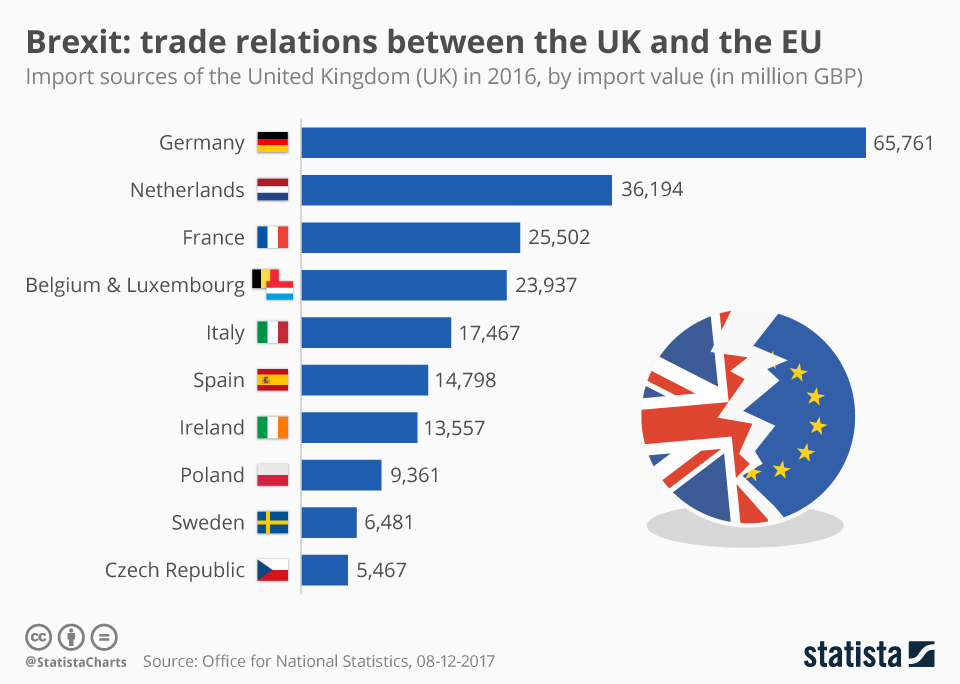The Brexit Effect: How It Hampers UK Luxury Exports To The EU

Table of Contents
Increased Bureaucracy and Customs Delays
Navigating the post-Brexit export process to the EU has become significantly more complex. New customs procedures demand extensive paperwork, adding substantial administrative burdens for UK luxury exporters. This increased bureaucracy translates directly into higher costs associated with employing customs brokers and managing the intricate documentation required for each shipment.
- Increased lead times for deliveries: Delays at customs checkpoints add days, sometimes weeks, to delivery times, impacting customer satisfaction and potentially leading to lost sales.
- Higher administrative costs impacting profitability: The cost of complying with new regulations, including fees for customs brokers and specialized software, significantly erodes profit margins.
- Risk of goods being held up at customs due to incorrect paperwork: Minor errors in documentation can result in lengthy delays and even the rejection of entire shipments, causing substantial financial losses.
- Examples of specific luxury goods affected: High-end fashion items requiring specific handling and certification, bespoke automobiles with intricate customs declarations, and perishable luxury food products all face heightened risks of delays and complications.
Tariff and Non-Tariff Barriers
Brexit has introduced new tariffs and non-tariff barriers, impacting the price and competitiveness of UK luxury goods within the EU market. Tariffs directly increase the cost of products, making them less appealing to EU consumers compared to domestically produced alternatives. Furthermore, non-tariff barriers, such as stricter sanitary and phytosanitary regulations (SPS) for food and agricultural products, add further complexities and costs.
- Increased prices for consumers in the EU, reducing demand: Higher prices due to tariffs make UK luxury goods less competitive, leading to a decrease in demand.
- Loss of price competitiveness compared to EU-based luxury brands: EU-based competitors, free from tariffs and additional bureaucratic hurdles, enjoy a significant price advantage.
- Examples of specific tariffs and non-tariff barriers: Tariffs on specific luxury goods vary, while SPS regulations often involve stringent documentation and testing requirements, adding to overall costs.
- Analysis of the financial impact on UK luxury businesses: The combined effect of tariffs and non-tariff barriers has resulted in significant revenue losses for many UK luxury brands.
Supply Chain Disruptions
Brexit has significantly disrupted supply chains for UK luxury goods, impacting both the sourcing of raw materials and the delivery to EU markets. The increased complexity and cost of managing cross-border logistics have created new challenges for businesses accustomed to frictionless trade within the single market.
- Delays in sourcing raw materials from the EU: The movement of materials across borders has become slower and more expensive, impacting production schedules and potentially leading to shortages.
- Increased transportation costs due to border checks and new routes: Longer transit times and additional border checks have increased transportation costs, further impacting profitability.
- Challenges in maintaining just-in-time inventory management: The unpredictability of delivery times makes it more difficult to maintain efficient inventory levels, potentially leading to stockouts or overstocking.
- Examples of specific supply chain disruptions: Luxury brands reliant on specific European materials or components have experienced significant delays and increased costs due to border controls and logistical complexities.
Impact on Brand Reputation and Consumer Perception
Brexit-related complications and delays can severely impact the reputation and consumer perception of UK luxury brands in the EU market. Timely delivery and exceptional customer service are paramount in the luxury sector, and disruptions to this delicate balance can have lasting consequences.
- Damage to brand image due to late deliveries or product damage: Delays and potential damage to goods during transit can negatively impact a brand's carefully cultivated image of quality and reliability.
- Loss of customer trust and loyalty: Negative experiences due to Brexit-related issues can lead to loss of customer trust and loyalty, potentially driving customers towards alternative brands.
- Negative impact on brand prestige and exclusivity: Disruptions can undermine the perception of exclusivity and prestige associated with many UK luxury brands.
- Strategies for mitigating reputational damage: Proactive communication with customers, transparent explanations of delays, and robust customer service protocols are crucial for minimizing reputational damage.
Conclusion: Overcoming the Brexit Hurdles for UK Luxury Exports to the EU
Brexit has presented significant challenges for UK luxury exporters, including increased bureaucracy, tariffs, supply chain disruptions, and damage to brand reputation. These challenges have resulted in substantial financial losses for the UK luxury sector. To mitigate these issues, UK luxury brands need to invest in customs expertise, diversify their markets, and build stronger relationships with EU distributors. Understanding the Brexit effect on UK luxury exports to the EU is crucial for survival in this changed market. Learn more about optimizing your export strategy and mitigating Brexit's impact today!

Featured Posts
-
 D Wave Quantum Qbts Stock Plunge Understanding Thursdays Decline
May 21, 2025
D Wave Quantum Qbts Stock Plunge Understanding Thursdays Decline
May 21, 2025 -
 Aston Villa Vs Manchester United Rashfords Goals Decide Fa Cup Tie
May 21, 2025
Aston Villa Vs Manchester United Rashfords Goals Decide Fa Cup Tie
May 21, 2025 -
 Dimotiko Odeio Rodoy Synaylia Ton Kathigiton
May 21, 2025
Dimotiko Odeio Rodoy Synaylia Ton Kathigiton
May 21, 2025 -
 Skin Bleaching And Self Image Insights From Vybz Kartels Experience
May 21, 2025
Skin Bleaching And Self Image Insights From Vybz Kartels Experience
May 21, 2025 -
 Tyler Bate And Pete Dunne Reunite On Wwe Raw
May 21, 2025
Tyler Bate And Pete Dunne Reunite On Wwe Raw
May 21, 2025
